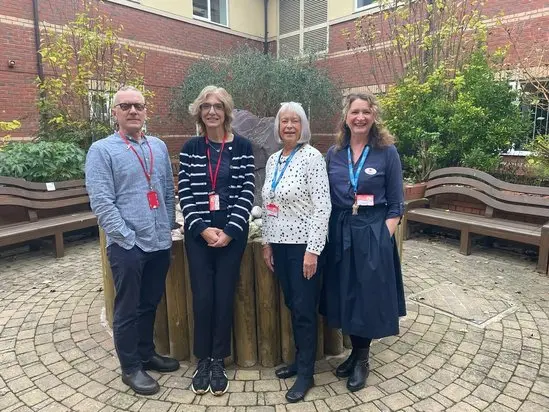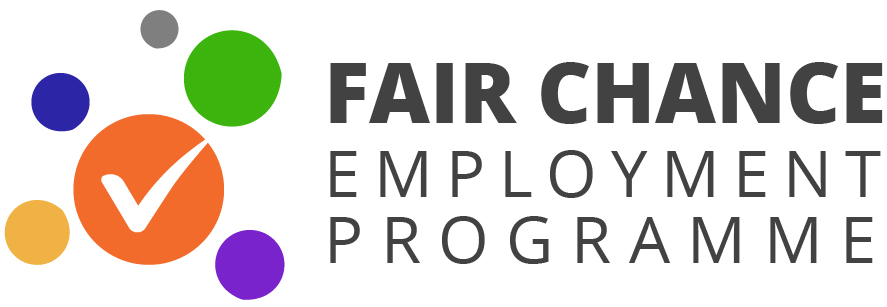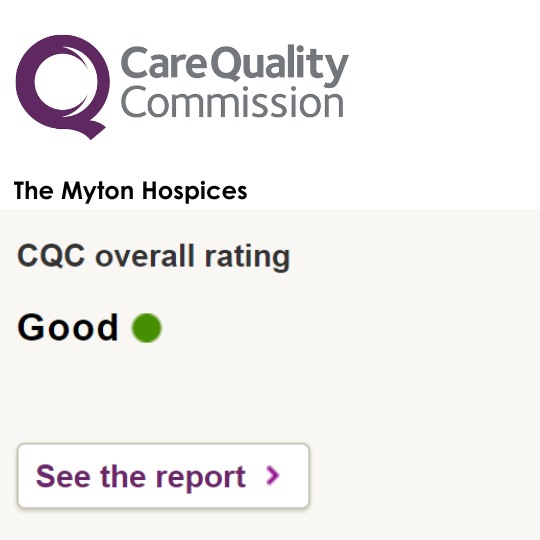Our Counselling Service is vital, providing much-needed support for our patients and their loved ones during difficult times. Read on to find out more about the team, what they do and who they support.
Meet Our Counselling and Bereavement Team…
Myton is a registered organisational member of the BACP (British Association of Counselling & Psychotherapy) which demonstrates our commitment to providing safe, ethical and professional counselling and psychotherapy services and training.
At The Myton Hospices, Debbie Frost is our Counselling, Bereavement & Family Support Service Lead. She works closely alongside six other staff counsellors and an Intake Practitioner within the team. As a minimum, the staff counsellors have a degree in counselling and/or psychotherapy, taking at least four years of training to complete. These fully qualified counsellors work on a permanent basis across all three of our hospice sites in Coventry, Rugby and Warwick.
Each client is triaged by our wonderful Intake Practitioner, Denise, who allocates the client to a counsellor for their course of therapy.
We also have a very valued number of Bank Counsellors and Student Counsellors who assist the team when needed to help manage the ever-growing waiting list. Myton is a recognised training provider for counsellors and the annual placement opportunities that we offer for student counsellors are highly sought after.
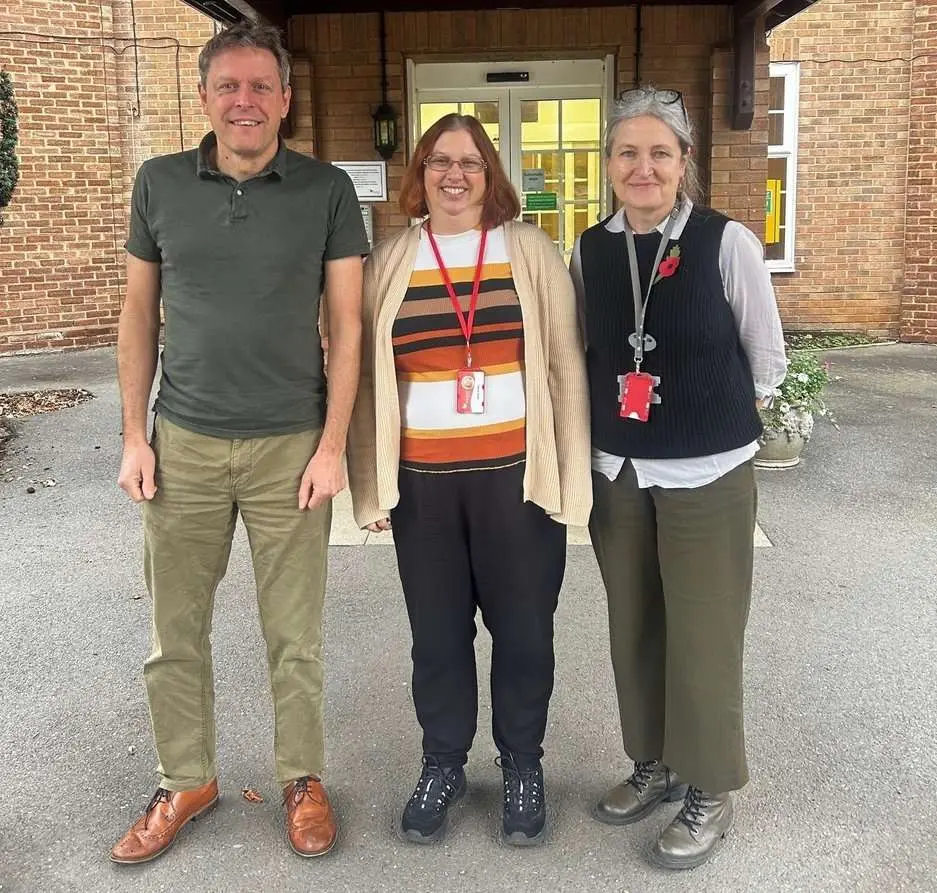
Who do our Counselling and Bereavement Team support?
Myton recognises the emotional and psychological challenge that life-limiting illnesses and loss place, not only on the patient themselves, but also on close family, friends and carers.
As part of our holistic approach to care, the counselling service provides high-quality palliative care counselling, and emotional and psychological support to all members of a patient’s family, during and after admission to other Myton services.
This includes provision of pre and post bereavement support for relatives, friends and carers, including children. Confidentiality is an essential component of the counselling relationship and is carefully safeguarded.
The team support individuals who present with a severe emotional response to their changing circumstances. Not everyone will need a counselling intervention to help them cope and manage with the illness or death of a loved one, but some of us have experienced additional difficulties which can complicate grief.
Whilst The Myton Hospices only care for people aged 18 and over, our Counselling Team do support children and young people, as well as adults, with coming to terms with a diagnosis or the death of a loved one, typically a parent or grandparent.
The patient themselves or the individual who has died must have had a life-limiting illness and be known to Myton for access to counselling.
Do our counsellors help people outside of Myton?
Whilst our clients do have to be known by Myton to receive care, our team of counsellors take part in educational outreach projects to educate our community in grief and bereavement.
Recently, the team hosted two grief and bereavement workshops at Coughton Court, a National Trust property, ahead of our Butterfly Effect campaign to support Myton and National Trust staff and volunteers when having difficult conversations during the Butterfly Effect installation.
The team are also involved in future projects to support schools and children who may have experienced bereavement. This is an area we are developing, so keep your eyes peeled for more updates!
How does the team support people and their families with a bereavement or life-limiting diagnosis?
Myton’s counselling team can provide help and support in a variety of ways. Individuals can access counselling on a one-to-one basis. Initially, clients have one hour a week for six weeks, with an extension to 12 weeks or more if appropriate.
Counselling enables the client to:
- Adjust to a life-limiting or terminal diagnosis
- Come to terms with losses experienced as a result of disease progression
- Work through unresolved emotional distress from past experiences
- Explore relationship issues which arise as a result of illness
- Discuss anxieties and fears about illness and death and its impact on family, friends and carers.
- Reduce anxiety and depression
- Come to terms with current and anticipated losses resulting from the illness/death
- Adjust to changing circumstances
- Express grief in whatever way they need to without concern for protecting the listener
- Normalise the grieving process
The counselling team can often be by a patient’s bedside within our Inpatient Units if our doctors and nurses believe they, or a family member, may need extra support coming to terms with their diagnosis or prognosis.
One-to-one sessions are also offered to children and young people, with five of our counsellors trained in supporting children. Children often have very little autonomy over their lives and can’t fully grasp the concept of finality, which can affect how they deal with bereavement.
Compared to younger children, teenagers tend to have more understanding of the world, but are facing many changes, physically, physiologically and cognitively, which can impact their reactions and responses to grief. Our team provides a safe space for children and young people to fully process their experiences.
Annually, the team run very successful bereavement groups, for partners who have been bereaved. The friendships and connections made at these groups are invaluable and former members often continue to meet and become valued volunteers and fundraisers for Myton.
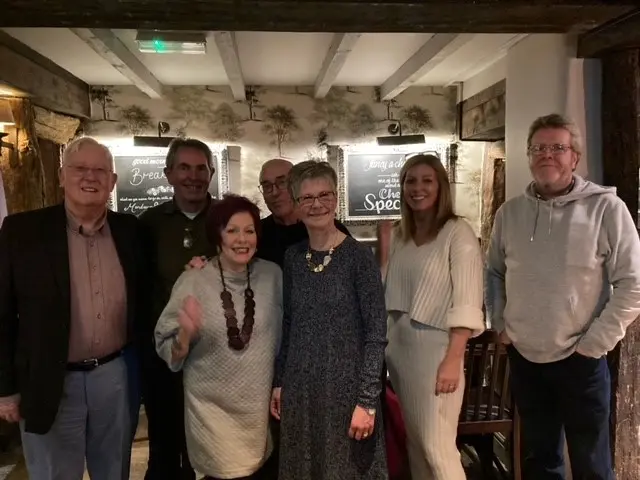
The team also run four family workshops each year to help children meet others of a comparable age who have experienced similar situations, culminating in a Family Festive Fun Event at Christmas. Different activities take place each time but the main goal of the session is to ensure a continued bond with the child’s loved one.
Alongside this, parents and guardians have their own session to explore how they can continue to support their children and themselves during these difficult times. After these separate sessions, parents and children come together to complete an activity which can help to build confidence and aid communication.
How are clients referred to our Counselling and Bereavement Team?
There are three main ways clients can be referred for counselling. Following receipt of our bereavement letter, clients can self-refer if they feel they would benefit from counselling following the death of a loved one. GPs and other external agencies can also refer clients if their loved one was known to Myton. Finally, clients can be referred internally from our multi-disciplinary team structure.
Denise, our Intake Practitioner gathers as much information as possible, spending up to an hour speaking with clients to understand their situation. After this, clients are allocated a counsellor based on location, counsellor experience and client presentation.
Clients can be referred at any time following the death of a loved one. Sometimes clients need intervention immediately, but for others, it could be years later, potentially triggered by other environmental factors, such as another death. The team is available for support no matter how much time has passed since the bereavement.
Our counselling team goes above and beyond, providing crucial support for our patients and their families. Their commitment and expertise make a real difference, helping people through some of the most difficult moments in their lives. Keep an eye out to learn more about their incredible work!


